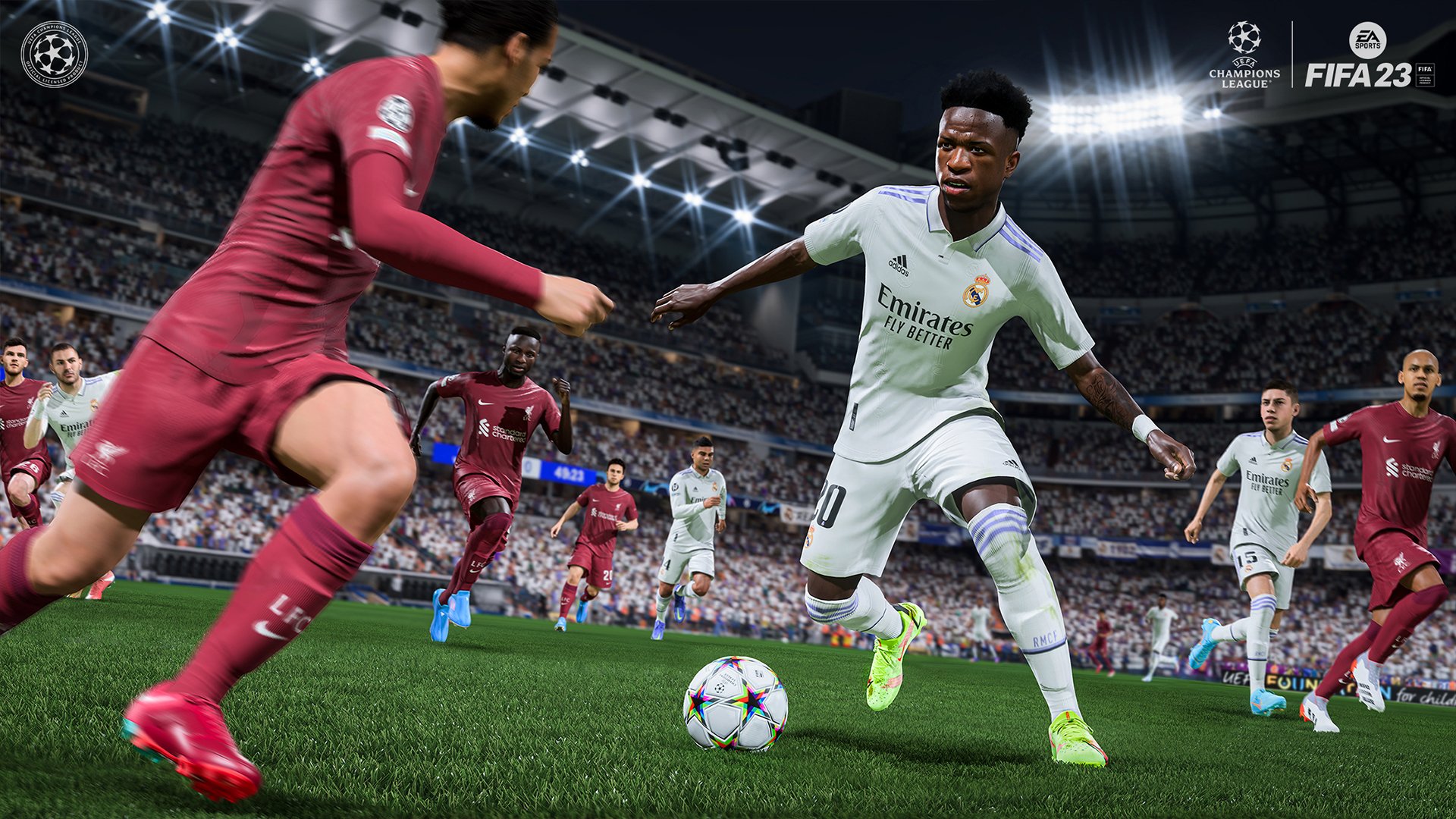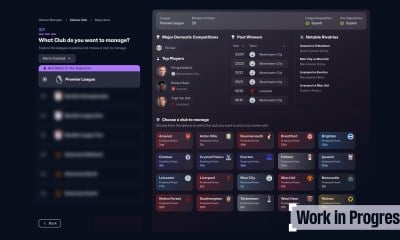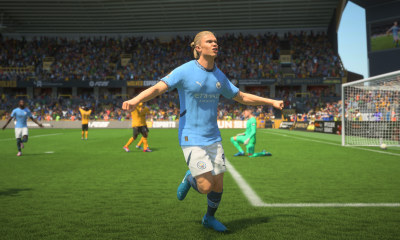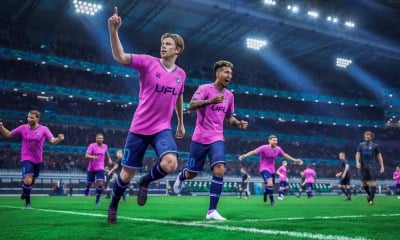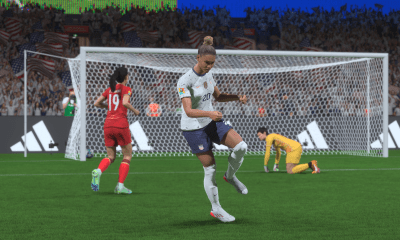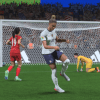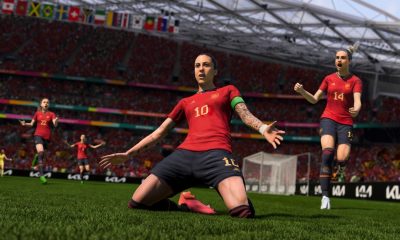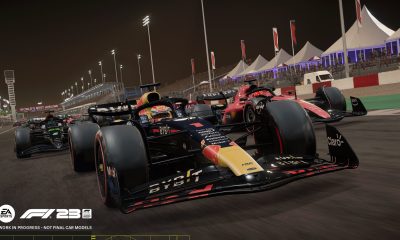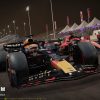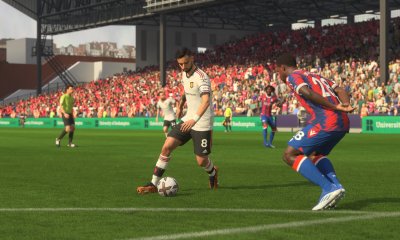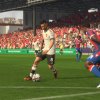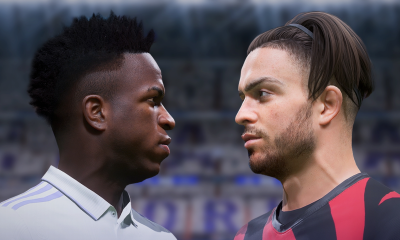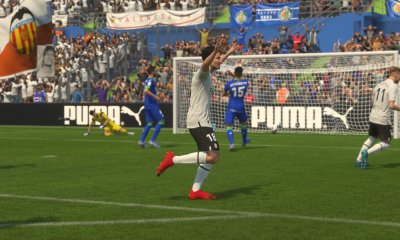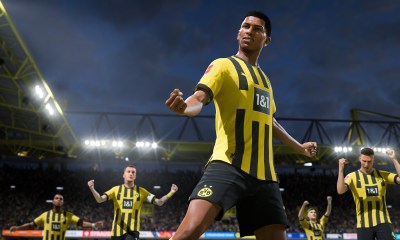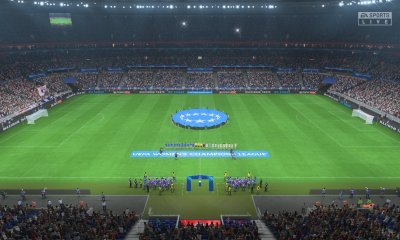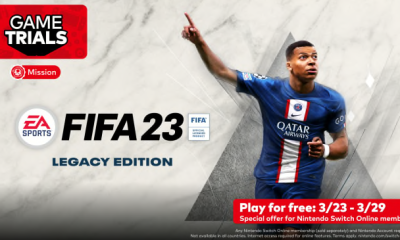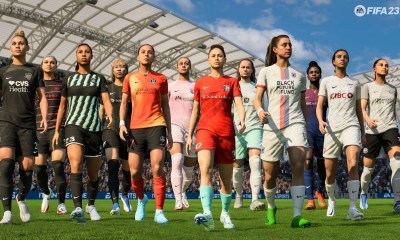FIFA 23
FIFA 23 Gameplay Reveal & Deep Dive Impressions
The FIFA 23 news is starting to come in waves, so we’re covering the gameplay deep dive that EA posted on Wednesday afternoon in this FIFA 23 gameplay reveal. There is a lot to cover, so let’s jump into it.
FIFA 23 Gameplay Reveal
HyperMotion 2
HyperMotion is back and along with it comes some improvements. Introduced last year as FIFA 22’s marquee innovation, HyperMotion failed to capitalize on the hype as the “game changing” promises made by EA struggled out of the gates. That’s not an uncommon thing for new systems or engines. It usually takes a year or so before major game developers can iron out the kinks. Enter HyperMotion 2 stage right.
According to EA:
HyperMotion is the foundation for FIFA 23 on PlayStation 5, Xbox Series X|S, PC and Stadia. This technology is composed of two major anchors: Advanced 11-on-11 Match Capture and Machine Learning.
With HyperMotion 2 comes 6,000 new animations, some captured by professional players in Xsen suits playing competitive 11-on-11 matches and training scenarios — and both men and women who now have specific animations tied to their player types. The women, who we’ll get into later, play a deservedly large role in this FIFA 23 gameplay reveal video.
Back to HyperMotion 2, it’s the two main components that comprise HyperMotion 2, Advanced Match Capture and Machine Learning, that are intriguing.
Advanced Match Capture
Xsen suits are back, and this time EA captured twice as much data as they did for FIFA 22. EA does a good job at showing some footage from the training match, transitioning between animation renders and full-on FIFA 23 gameplay clips. It would have been nice to see a sequence where the training match footage is shown in animation render mode before transitioning into what the final game would look like, but nonetheless it seems to be logical step for motion capture. Hopefully the next step would be to mo-cap real players if you truly want a true-to-life Player ID model like vintage PES games.
Machine Learning
Not to be overlooked, Machine Learning is the component of HyperMotion 2 that uses the footage Advanced Match Capture provides and learns from it to create even more animations that play out in real-time. The first iteration of HyperMotion was supposed to help with this, but overall it didn’t replicate realistic animations well enough for me.
FIFA 22, much like its predecessors, struggled with selecting the right animation for the situation you’re in. While the end result, such as a goal, might still be the same, the visual animation that plays out diminishes the thrill of scoring far too often. For such as interesting concept, EA glosses over Machine Learning apart from teasing two new benefits from it: ML-Jockey and Technical Dribbling.
Technical Dribbling
Even though the trailer skips ahead to the women’s game, we’re going to get into Technical Dribbling and Machine Learning Jockey (ML-Jockey) since they are byproducts of Machine Learning. First up is Technical Dribbling, which was said to be immediately different and noticeable when compared to FIFA 22. Enhanced responsiveness (uh oh) and better visual quality (how the animations look on-screen when executed) look like the main selling points, but anytime someone says FIFA needs to be more responsive I get a little scared. While I’ll always agree that button input should be responsive, it’s the locomotion system that needs to chill out.
FIFA often looks photo-realistic at a standstill (that grass looks good this year!) but once in motion you can quickly tell it’s a video game. Some of this is down to the graphical style, but a lot can be attributed to how players run with and without the ball. For me, eFootball 2022 is the gold standard when it comes to dribbling. There aren’t many areas of that game where you can say that, but the way players take touches and control the ball allowing you to beat defenders without skill moves is what FIFA should strive for. Perhaps, like they did with Power Kick, EA might have taken a page from Konami’s playbook here to go that route.
There’s a mention of foot planting in the trailer, but it still isn’t evidenced in this Thiago clip I grabbed from the video:
ML-Jockey
I preach balance when it comes to soccer games and here to balance out Technical Dribbling is ML-Jockey. Only available on Next-Gen, Stadia, and the PC, ML-Jockey seems like an odd feature if I’m being honest. Don’t get me wrong, I like the idea of jockeying, and when combined with timing for putting in a tackle, it’s a feature that makes sense. However, after watching the video, it seems like it focuses more on the end product, the tackling animation, than it does the actual jockeying that has been in FIFA for as long as I can remember. The deep dive goes into more detail, specifically how ML-Jockey ties into the defensive awareness rating. In general, defensive awareness is:
Previously known as marking, it is the ability to track and defend an opposing player. In other words, it is your player’s ability to stay close to an opposing attacker and stop him getting to a cross/pass from a teammate. Also contributes to tracking runs. AI players will do this off the ball, and when you’re in control of a defender their Defensive Awareness stat will affect how good they are at containing.
Remember that because EA takes all of that and adds this to it in order to implement ML-Jockey:
The Defensive Awareness Attribute impacts the following aspects of Jockeying:
-
- The max speed while Sprint Jockeying.
- The Sprint Speed Attribute does not impact Jockey speed.
- Transition speed between Jockey and Sprint Jockey.
- How much speed and acceleration are maintained when exiting Jockey into Sprint.
- Acceleration during Jockeying, along with the Acceleration Attribute
The higher the Defensive Awareness Attribute, the faster a player can perform the Jockey movements outlined above.
That’s a lot for defensive awareness to handle, especially for a game where your AI teammates don’t seem to have any, and from the looks of it, still won’t in FIFA 23.
Women’s Football Updates
A little known secret since FIFA 16, the women’s teams in FIFA often give you a much better game than the men. As EA gradually increased the participation of women in FIFA with their introduction in FIFA 16 to their inclusion in Pro Clubs last year for FIFA 22, this year EA captured two professional women’s teams. When combining that with the Machine Learning technology, specific animations for women look like they will be a success.
According to the trailer, this changed the whole women’s locomotion system. Cover star Sam Kerr will have player-specific movement visuals to go along with three different overall movement archetypes. It’s also good to see that the concept of archetypes introduced in Pro Clubs has made it into the greater game.
Accelerate
Piggybacking off last year’s explosive sprint command that gave us the ability to push the ball forward is Accelerate. Archetypes seem to be the trend this year, and this feature has three:
- Controlled – Most players in FIFA 23 will fall into the Controlled type as they accelerate uniformly in a controlled manner.
- Explosive – These are shorter and more agile players who are able to quickly cover short distances and get ahead of their opponents, even if that means slowing down after the initial burst of acceleration.
- These players are quicker to start but their acceleration rate slows down.
- Lengthy – Taller and stronger, these players need a bit more time to get going, but are able to catch up to anyone and even surpass them, provided they have enough distance.
- These players start slower but will thrive over longer distances.
I’m a fan of differentiating players by traits, attributes, and so on, and this looks to be the reasoning behind EA’s inclusion as the three archetypes listed above are differentiated by ratings:
- Explosive:
- Agility >= 65
- (Agility – Strength) >= 15
- Acceleration >= 70
- Height <= 180 cm (~ 5’11”)
- Example player: Vinícius Jr.
- Lengthy
- Strength >= 65
- (Strength – Agility) >= 15
- Acceleration >= 50
- Height >= 174 cm (~ 5’9”)
- Example player: Virgil Van Dijk
- Controlled – any player that does not meet the other two requirements above.
- Example player: Son Heung-min
This is a nice addition, and it’s an area that might come in handy when scouting new players, especially wingers who tend to be high in agility and acceleration.
Attacking
Power Shots & Composed Ball Striking
Among the host of new attacking options added this year are Power Shots. Taking a page from eFootball 2022, this Power Shot supposedly requires more precision, whether it’s off the dribble or when taking a shot on the volley. With the animation taking longer to play out, there’s an element of risk/reward to be had here as to when to execute it and when to opt for a regular shot.
According to the Deep Dive, these shots will take into account your aim, which is a nice way to limit abuse in case it’s overpowered out of the box. For me, Composed Ball Striking seems like another feature EA borrowed from PES as pressing R3 allows you to flick the ball up to yourself to get a shot or pass off. It’s another nice-to-have feature but certainly one that’s not game-changing by any means.
Set Pieces
There’s a mention of now being able to lay down behind the wall when defending free kicks, and the majority of the attention here goes to penalties and free kicks overall. Introducing a much more intuitive aiming system for both PKs and free kicks, you can now control your trajectory better in the case of free kicks. When it comes to penalties, there’s an added element of composure now that utilizes a bar to help replicate the sense of pressure that often accompanies kicks from the spot.
Defending
Not to be outdone by the new attacking features, the defensive side of the game sees a new feature added in the form of Hard Slide. Like many of you, I sat a little perplexed and dumbfounded as EA attempted to explain the benefits of this slide tackle on steroids as it was marketed as some sort of counter to Power Shots. For me, there’s no more waste of a button than the slide tackle in FIFA. Due to how responsive the players are and how hard it is for you to get close to attackers, the normal slide tackle was fine as is.
There was a mention of elite defenders now having new animations — such as stepping across attackers, toe pokes, and standing tackles — but it’s what’s missing or rather unchanged, that’s of much more concern.
Also, yup, the lack of midfield resistance due to your AI teammates not even trying to engage attackers unless you switch to them is on full display:
Not only do midfielders still not actively defend, the space in-between the defensive lines is shockingly worse than last year from what I could see. Just look at the picture above and how Mason Mount is in acres of space at the top of the eighteen. Five Spurs defenders across that backline marking one Chelsea attacker. Also deeply concerning is this from Sam Rivera in a hands-on preview with HyperMotion 2:
I also noticed I wasn’t feeling as crowded in the box by the computer opponents. When I ask about this, Rivera attributes it to smarter AI. “With the position changes that we’re doing this year – they weren’t even mentioned in the presentation – we are making the defensive positioning a bit wider and we are creating a lot more runs in the box, because it was too crowded,” he says. “Also, we are reducing the amount of offside runs.”
So the answer to your defensive line dropping back too deep and EA purposefully amping up blocks in FIFA 23 is to make defensive positioning even wider? No! Take a look at most professional matches from the top leagues and what you’ll see is compact defenses when the ball is near their goal, which makes it harder to attack in the center of the pitch. Unfortunately, FIFA 22 let you walk into the box because of the midfield issue, and FIFA 23 looks to have even less resistance.
Goalkeepers And Physics
Physics are an important part of soccer games. The impact they have on all aspects of the game often go unnoticed, but a floaty shot or passes that roll perfectly along the grass don’t fly anymore in 2022. Well, thankfully EA has given us goalkeeper physics so we can see the impact the ball has on their fingers. Again, this is good overall but not something that I would particularly emphasize in a gameplay video considering you can only see these new physics in replay mode since no one plays on the super close CGI-infused cameras we see in EA trailers.
The deflections when defenders stick out a leg do look good, but we need to see them in action and figure out whether or not scripting sees them fall perfectly to the AI more often than not.
Bottom Line
EA does a great job at saying all the right things and hyping up the next iteration of FIFA. Their communication through Pitch Notes and their Deep Dives should be the norm for all companies. Unfortunately, most of the hype I feel when reading these are quickly diminished once I see the game in action. Out of an 11-minute gameplay trailer, only two minutes or so were actually 11-on-11 gameplay clips. This makes it extremely hard to judge the game.
The closed beta will give us a better idea, but the clips I did see did little to show me that the areas where FIFA 22 struggled have been addressed this year. Instead, it seems like they were pushed aside for new flashy marketing slogans and features the community didn’t necessarily ask for. It’s time for EA to forsake some of the new features and fix what currently ails the franchise. Until they take that approach, FIFA will be a shiny new Mercedes with the engine of a Chevy Nova.


